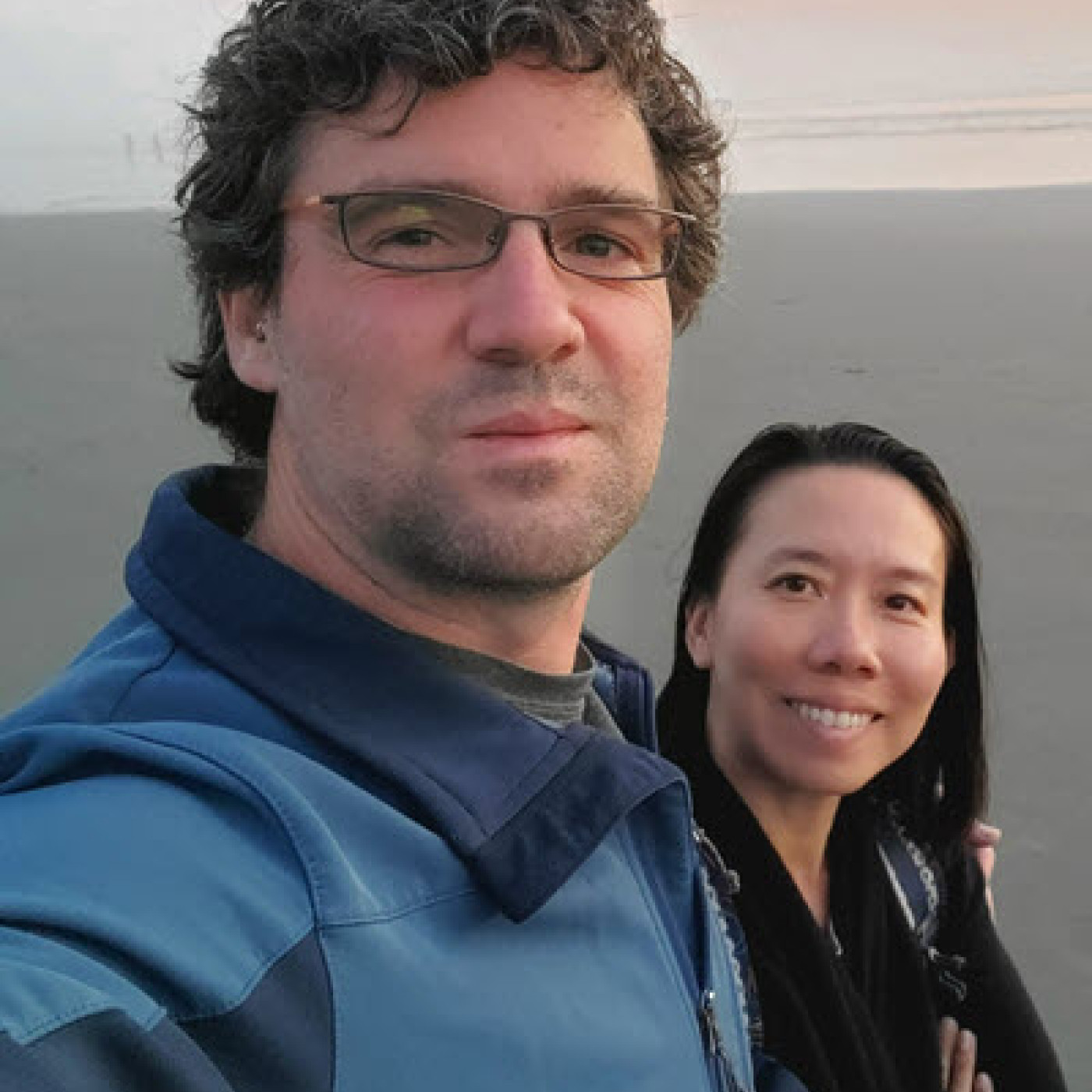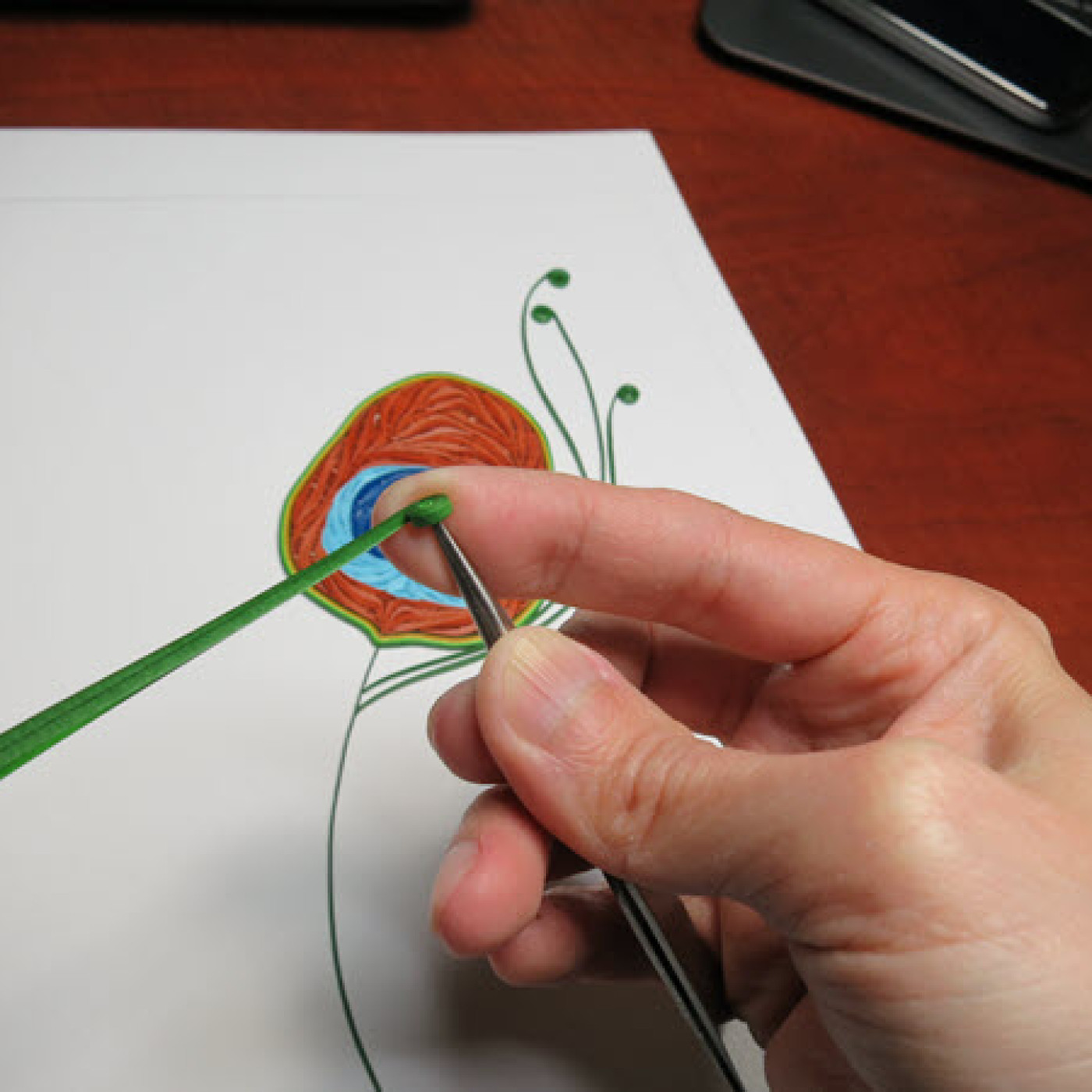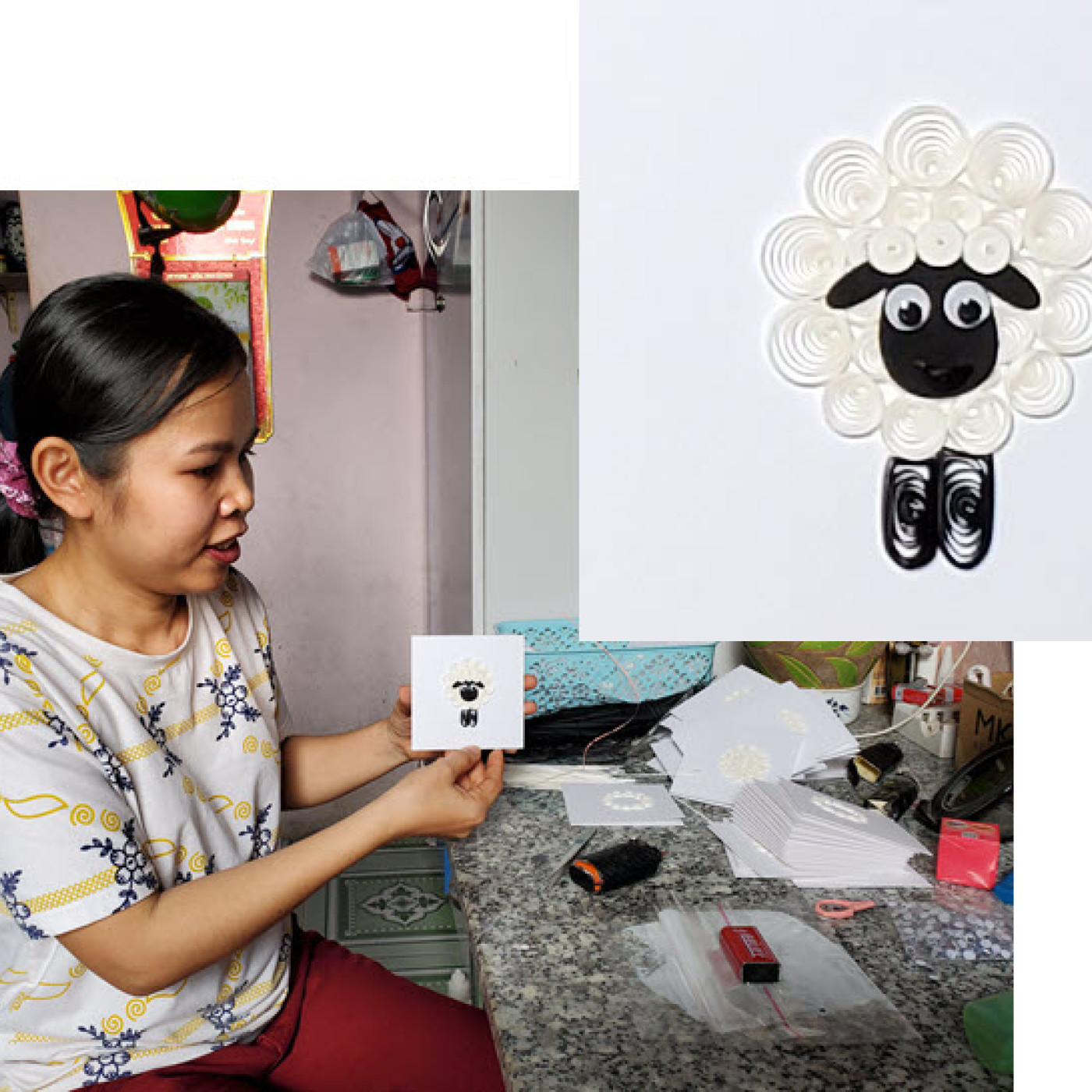The Balance Game

Photo courtesy of Aaron Furuseth
How a Business Evolved
Selling handmade cards at art shows and wholesale goes hand in hand for Iconic Quilling, and the route this business took to get there provides insight for others interested in doing the same thing.
“It’s been a learning curve for us,” said Aaron Furuseth, who started the Minneapolis-based business with his wife Anh Nguyen in 2012.
Initially, they didn’t know where the business was headed, or what they wanted to achieve. Furuseth and Nguyen simply wanted to do something that combined her Vietnamese heritage and their love of the outdoors.
“We only sold other peoples’ designs for the first few months,” Furuseth said. “We realized very quickly that the size and the type of design wouldn’t work for an American audience since they were designed for a Vietnamese market and were 6" x 6" and required extra postage.”
Neither Nguyen nor Furuseth has a background in the visual arts. When Nguyen decided to start drawing, she learned that with practice, she could become an artist.
“She draws her designs based on our love of nature and on feedback from customers at shows. She generally has a list of designs to work on and when she feels inspired or compelled by a certain idea, she researches the design online by looking at pictures of both real animals/flowers and other artists’ interpretations of the design,” Furuseth said. “She is always refining her work and retiring old designs, and she says she finds it strange to look back at her old designs from five or six years ago because her process has gotten so much more refined that she hardly recognizes her old work.”
The Next Step
The quilling aspect is handled by 20 women who live in rural villages around the countryside of Vietnam. Iconic Quilling employs them as full-time artisans.
A woman based in Ho Chi Minh City coordinates the logistics of getting the cardstock, paper strips, and other materials necessary for completing the work to the women, Furuseth said.
When additional inventory is required, she hires and trains new artisans for Iconic Quilling. “The work is so meticulous that often, she will train 10 women for a couple months and only retain one of them for full-time employment,” he said.
his woman also employs a few people, including her husband, to do quality control and packing to ship to Iconic Quilling. Nguyen’s father does the final inspection and keeps track of the financial side of the business in Ho Chi Minh City.
Because Iconic Quilling’s cards combine Nguyen’s designs with the work of others, Furuseth carefully reads the criteria of any art shows they consider applying to. He wants to make sure their items are appropriate for the event.
This woman also employs a few people, including her husband, to do quality control and packing to ship to Iconic Quilling. Nguyen’s father does the final inspection and keeps track of the financial side of the business in Ho Chi Minh City.
Because Iconic Quilling’s cards combine Nguyen’s designs with the work of others, Furuseth carefully reads the criteria of any art shows they consider applying to. He wants to make sure their items are appropriate for the event.

Photo courtesy of Aaron Furuseth
Beginning with Wholesale
Their business model may differ from that of other artists because the wholesale side was more a first step for them rather than beginning with shows. Furuseth said when they became more serious about the business, they started knocking on the doors of places where they wanted to shop. There are a few in Minneapolis they are still working with today, he said.
They also began participating in local events, like farm markets, and used Sunshine Artist to find art shows to apply to.
Furuseth and Nguyen now do about 25 shows per year, usually scheduling them from May to September. They apply for three to five shows for every weekend of those five months and see which ones accept them.
After September, they stop exhibiting at outdoor shows in the Midwest. They may do three or four local, indoor shows, partnering with art centers that do holiday boutique, consignment-based shows. He said it is a way to push their inventory out to a different location.
Furuseth keeps track of his hours at shows and writes every transaction down, so he knows which times are typically the busiest.
For them, continuing to do art fairs is a way to get valuable feedback about what is selling and whether people wish a particular design was in a different color, he said.
They also note which shows are worth applying to again. Furuseth ended the 2021 outdoor show season in Michigan, and the event did not meet his expectations.
Nguyen was at a show in Ames, Iowa, that same weekend. She sold about $100 more in the one-day festival than he did over the course of several days at the Michigan show. “It just makes me think we’ll always do Ames,” he said.
Regardless of how a show goes, he said they decided early on that they were not going to stay in tents and eat at fast-food restaurants when they do art shows.
They want to have a decent dinner and a shower. He advises other artists to not feel like they must punish themselves when things do not go as expected at a show. Furuseth said he and Nguyen agreed right away that “we’re just going to enjoy it and treat it like an experience.”
Their Turning Point
Through 2018, their sales at shows made up 50% of their income. Furuseth said 2019 was the first year that wholesale sales eclipsed show sales. He attributes that to the sales rep group they met in early 2019, “who sold to many new stores for us.”
That was the turning point for their business model.
Since they continue to do both art shows and wholesale, going to shows gives Furuseth the opportunity to stop at stores in those areas for the wholesale side of their business.
Several hundred stores in the country order from Iconic Quilling on a regular basis. He said at least half of them are small boutiques that order a small amount of product every few weeks.
They do not require that a store buy a minimum amount of any design. “Don’t have the expectation that a store will buy your inventory out,” he said. “People need to respond to art on their own terms.”
Iconic Quilling averages five online orders per day. That could include a store ordering thousands of dollars in product and a person buying one card, Furuseth said.
When he approaches a small business to discuss wholesale opportunities, Furuseth generally asks to speak to the owner or manager. He does not act like a sales rep when he visits businesses, even though he knows he could be more aggressive.
“Regardless of who I talk to, I always leave a 5 x 7 card and a business card with the business and usually try to also leave a sheet of information about who we are and what our business can offer them if they carry our cards,” he said.
Having something like that in front of someone is super valuable, Furuseth said.
A few times a year, he spends a week or so researching businesses around the United States like bookstores and museum gift shops. “Then I will mail them a card sample and a sheet of information. I then follow up by phone and/or email a week or so later to confirm receipt and answer any questions,” Furuseth said.

Photo courtesy of Aaron Furuseth
Growing Gradually
It is not even three years ago that Furuseth was working full time elsewhere and spending many weekends traveling to art shows.
“Everything about our business has been pretty organic. We have never had to take loans or borrow from anyone. Since it moved gradually, we were able to keep up pretty well with demand by training people as needed. It is difficult to find people capable of producing the quality of work that we need so often,” he said. “We will hire a number of people, pay them a training wage for up to two months while they attempt to learn how to quill correctly, and then retain the ones who make the cut and are interested at the end of the training process.”
Iconic Quilling’s best year to date was 2021. “Our overall sales are up about 50% from our previous best year, which was 2019. We broke every record that we ever had for show sales (best single day, best weekend, best hour, etc.),” Furuseth said. “We added a number of new wholesale customers and generally just had a great sales year.”
Furuseth said their business works because he and Nguyen have different skill sets. “The only really applicable skill from either of our past work experiences would be my previous job with Yellow Book. I hired and trained employees, traveled a lot, and ran large budget projects,” he said.
While most of their day-to-day tasks can be accomplished by either of them, he said they tend to fall into the roles each of them prefers.
“Obviously, Anh being from Vietnam is an essential part of what makes this all work since the labor costs of producing the cards in the USA would be prohibitive,” Furuseth said. “Anh deciding to teach herself to draw our designs is another essential aspect of our success. She handles all of the Vietnamese logistics while I work with all the sales reps, businesses, show scheduling, and interview requests.”
For business tips in every magazine issue and online, subscribe today.
